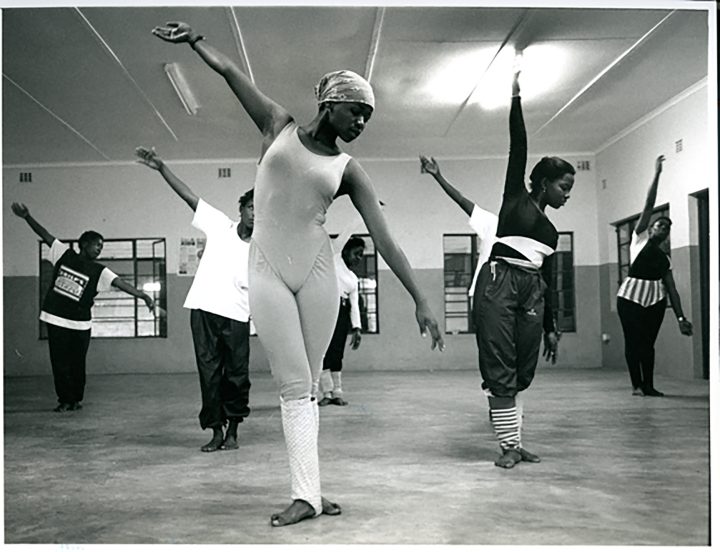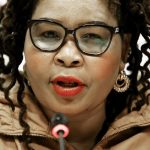Maverick Citizen: Tuesday Editorial
Budget 2021: Why we need to fully fund the culture economy

Even by economists’ own barren measures, arts merit funding. It’s an investment whose stock appreciates over time. It grows the human imagination. It is an area in which South Africa has excelled and has an enormous untapped domestic and global market.
This week is Budget week. In the face of all our pressing challenges – disease, death, hunger, crime – many might feel that funding the arts should be the last of our priorities.
In the 2020/21 Budget, which was developed before we were hit by Covid-19, “arts and culture promotion and development” received only R1,295-billion out of our country’s total budget of R1.95-trillion. That is less than 0.1%. This paltry sum seems at odds with the fact that the creative industries are one of our biggest employers – more than one million people. Collectively what is called the cultural economy accounted for nearly 7% of all employment in 2015.
These figures were before the industry was “decimated” by Covid-19. According to the Sustaining Theatre and Dance (STAND) Foundation, which held a series of dialogues among artists in Stellenbosch last weekend, the creative industry has been the second-worst affected by the pandemic. Theatres have closed, live performances have been cancelled and apart from writers, dancers, actors and directors, all the secondary industries that depend on the arts have also been hammered.
So, not surprisingly, one of the topics the artivists debated was “Should theatre and dance be funded by the state given the other challenges that face our society?” I predict that the government’s answer to this question, to be revealed by Wednesday’s Budget, will be no.
But that is the wrong answer.
In fact, funding should be dramatically increased. Artists themselves have demanded increased funding, linked to a change of leadership as well as the ways and means by which arts are funded. This must start with the firing of Minister of Sports, Arts and Culture Nathi Mthethwa (who they call the Minister of condolences and congratulations) as demanded in a petition signed by more than 2,000 artists.
Toilets and theatres, not toilets or theatres
But why should we fund theatre and dance in a time of femicide, a time when kids drown in school toilets and pandemics of Aids, TB and Covid-19 cause hundreds of thousands of deaths? Arts are not essential services or socio-economic rights – so the thinking goes.
South Africa is a country of grand inequality, our socio-economic problems are enormous and the demands on the fiscus, we are told by the finance minister, go way beyond our available resources. We have to triage money to meet the most urgent needs.
This may be true, but the notion that health can be fixed only by buying medicines, or crime only by more police and better courts, is profoundly mistaken.
Hunger, for example, exists on two levels: there is the hunger of the body, but there is also hunger of the mind. There are pandemics of physical illnesses, but there is also a pandemic of mental illness; there is political corruption, but there is also a moral corruption; there is State Capture and there is also mental slavery. In the thick of these deprivations there is widespread despair and a feeling of a loss of autonomy and power over our lives.
Undoubtedly, poverty and inequality require that we fund our material infrastructure for the delivery of rights, as legally required by the Bill of Rights in the Constitution. But it is equally important we direct resources at those people and occupations that tend to our spiritual infrastructure, the people whose work inculcates democratic values: these are our poets, our dancers, our actors and the venues and support systems needed to make it possible for them to work.
During the STAND dialogues, Ismail Mahomed, formerly the artistic director of the National Arts Festival and Market Theatre, complained about “economic censorship by the state of the artistic community that is aimed at weakening the power of theatre as a political force”. This might seem far fetched in our democracy, but it isn’t. Mahomed explains that it takes place through political discrimination in who gets funding; patronage by ministers and MECs of friends and comrades combined with the blacklisting of independent and critical voices.
Mahomed is far from the only person who thinks this. Two years ago veteran playwright Maishe Maponya wrote about how “the proverbial “wings” of… vibrant community projects were “clipped”. As in censorship, Big Brother would determine willy-nilly who gets what and when. Big Brother had its own criteria based on whether they like what you were saying/doing or not. Government took to usurping the national calendar holidays as a platform for self-praise and political posturing under the cloak of “national” events.”
In his poetry book Da’s Kak in the Land he says it even more strongly! Read it.
But the crisis in the arts brought about by this combination of insufficient funds and the capture of the resources that do exist goes much deeper than you might imagine. The arts are central to human development, to identity, to conscience, to the distillation of our values, to critique. Therefore I believe this societal lacuna helps explain our loss of empathy and connection – our numbness to and normalisation of the horrors that we witness but do not see every day.
The problem is not that things were okay before Covid. It is that they were not okay. In fact we don’t want the old economy back.
Even by economists’ own barren measures, arts merit funding. The value of arts is that it’s an investment whose stock appreciates over time. It grows the human imagination. It is an area in which South Africa has excelled and has an enormous untapped domestic and global market. Our culture has the potential to inspire globally, as we saw with Jerusalema.
So what we are trying to say is that Covid-19 requires a societal reset. But we must see this reset as being about the recovery of our soul and not just our economy. In truth, arts and the economy cannot do without each other. As the young philosopher Siseko Kumalo puts it, there is a need for “re- membering” (putting our dismembered bodies back together) as part of reconstructing. And public funding has a critical part to play in helping this to happen.
However, as I have lamented in other editorials, sadly the government is no longer moved by evidence it can’t fit into a preconceived frame called austerity. So you can bet more money for arts isn’t going to flow from the 2021/22 Budget. This means that – as with so many other human rights – for the time being we can only rely on ourselves. One thing you can do, however, is take out a monthly subscription to the STAND Foundation and help theatre and dance to stand up for a better future for all of us. DM/MC
Information pertaining to Covid-19, vaccines, how to control the spread of the virus and potential treatments is ever-changing. Under the South African Disaster Management Act Regulation 11(5)(c), it is prohibited to publish information through any medium with the intention to deceive people on government measures to address Covid-19. We are, therefore, disabling the comment section on this article in order to protect both the commenting member and ourselves from potential liability. Should you have additional information we should know about, please email [email protected]



















 Become an Insider
Become an Insider